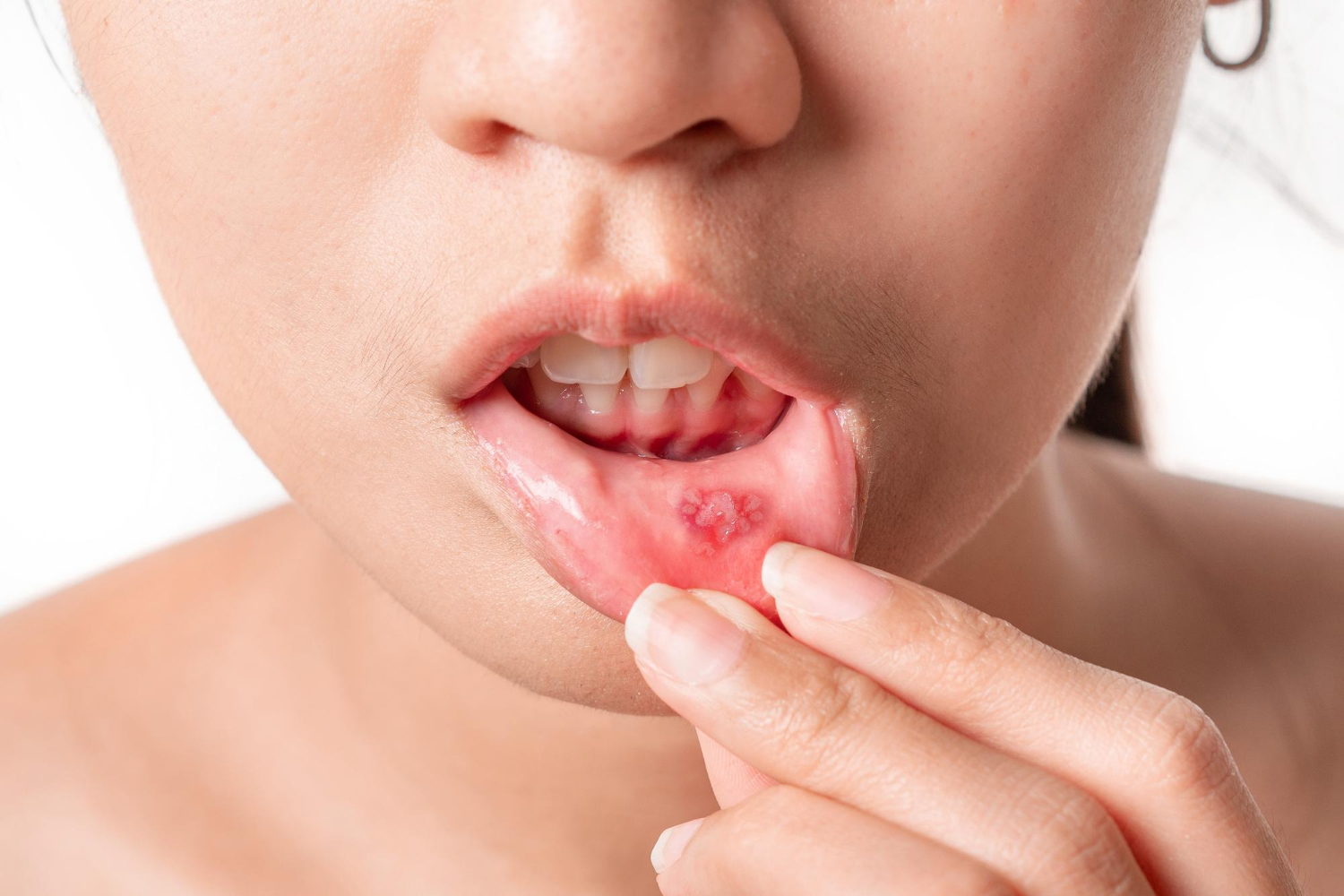Are you experiencing discomfort in your mouth, making it difficult to eat or speak? You might be dealing with mouth ulcers. These small, painful sores can appear on the inside of your cheeks, lips, or even on your tongue. While they are usually harmless and go away on their own, understanding their symptoms, causes, and treatment can help manage them effectively. In this blog, we’ll explore everything you need to know about mouth ulcers, debunk common myths, and provide insights into their treatment.
Mouth Ulcers: All you should know
What are Mouth ulcers?
Any sore or painful area inside your mouth that can make it hard to speak, eat, and drink might be called a mouth ulcer. You may have one or many of these sores, which are often red, yellow, or white. Mouth ulcers can develop on your inner cheeks, tongue, gums, inner side of lips, or even roof of the mouth.
Usually, these tiny sores go away by themselves. However, if they don’t, may cause alarming signs for you!
Thus read carefully this comprehensive guide from Aesthetic Dental and learn to get the right things done!
Symptoms
Mouth ulcers, also known as canker sores, often start as a tingling or burning sensation in the mouth. They then develop into painful, round, or oval sores with a white or yellow center and a red border. Other common symptoms include:
- Swollen, red gums
- Difficulty in eating or drinking, especially spicy or acidic foods
- Pain or discomfort when brushing teeth
- Swollen lymph nodes
Let’s see what are the root cause of these mouth ulcers!
Causes
The exact cause of mouth ulcers is not always clear, but several factors can contribute to their development:
- Trauma: Accidentally biting the inside of your cheek or lip, or using a toothbrush which can cause minor trauma, leading to the formation of mouth ulcers.
- Food to which we are sensitive: Certain foods, such as citrus fruits, spicy foods, and nuts, can trigger the development of mouth ulcers in some individuals.
- Stress: Stress plays a vital role in the development of mouth ulcers. Emotional stress or anxiety can weaken the immune system, making you more susceptible to developing mouth ulcers.
- Deficiencies: Lack of essential nutrients, such as vitamin B12, iron, or folate, can contribute to the development of mouth ulcers.
- Health Problems: Conditions such as celiac disease, Crohn’s disease, or poor gut health that results in a compromised immune system can increase the risk of developing mouth ulcers.
Treatment: Keep them at Bay!
While most mouth ulcers will heal on their own within 1-2 weeks, there are several treatments available to help alleviate symptoms and promote faster healing:
- Medications: Pain-relieving gels or mouthwashes containing ingredients like benzocaine or hydrogen peroxide can help reduce pain and promote healing.
- Taking Care of Food intake: Avoiding spicy, acidic, or rough foods can help prevent further irritation to the ulcerated area.
- Oral Hygiene: Brushing gently with a soft-bristled toothbrush and using a mild, non-irritating toothpaste can help prevent further irritation.
- Visit to your Doctor or Dentist: In severe cases, your dentist or doctor may prescribe corticosteroids or antimicrobial mouthwashes to help reduce inflammation and prevent infection.
- Nutritional Supplements: If your mouth ulcers are due to nutritional deficiencies, your healthcare provider may recommend supplements to address these deficiencies.
Some Common Myths About Mouth Ulcers:
There are several myths surrounding mouth ulcers that need to be debunked:
- Myth: Mouth Ulcers are Contagious.
Fact: Mouth ulcers are not contagious and cannot be spread from person to person.
- Myth: They are Cancerous.
Fact: While it’s essential to have any persistent mouth ulcers checked by a healthcare professional, most mouth ulcers are harmless and not a sign of cancer.
- Myth: Mouth Ulcers occur only in Adults.
Fact: These ulcers can occur at any age, including in children.
- Myth: Placing Aspirin under the tongue cures mouth ulcers.
Fact: Placing aspirin directly on a mouth ulcer can burn the surrounding tissue and worsen the ulcer. Please avoid it completely.
- Myth: Mouth Ulcers mean poor oral hygiene.
Fact: While maintaining good oral hygiene is essential for overall oral health, mouth ulcers can occur even in individuals with excellent oral hygiene. There can be other reasons for their appearance.
The Final Intake about Mouth Ulcers:
Mouth ulcers, while painful and uncomfortable, are usually harmless and can be managed effectively with the right treatment. By understanding their symptoms, and causes, and debunking common myths, you can take the necessary steps to alleviate discomfort and promote healing. If you are experiencing persistent or severe mouth ulcers, it’s essential to consult with a healthcare professional to determine the underlying cause and receive appropriate treatment. Please go and visit your dentist as soon as possible.
Aesthetic Dental Mohali is always there to serve you. If you are staying near us, do visit the best Dental clinic in Mohali. Book your appointment and get the best treatment in Chandigarh Tricity region.


Recent Comments